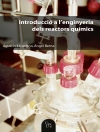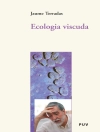What’s it really like to be a chemist?
Leading chemists share what they do, how they do it, and why they love it.
“Letters to a young …” has been a much-loved way for professionals in a field to convey their enthusiasm and the realities of what they do to the next generation. Now, Letters to a Young Chemist does the same for the chemical sciences. Written with a humorous touch by some of today’s leading chemists, this book presents missives to “Angela, ” a fictional undergraduate considering a career in chemistry. The different chapters offer a mix of fundamental principles, contemporary issues, and challenges for the future. Marye Anne Fox, Chancellor of the University of California San Diego, talks about learning to do research and modern physical organic chemistry. Brothers Jonathan and Daniel Sessler explain the chemistry of anesthetics that make modern surgery possible while Elizabeth Nolan talks about biological imaging. Terry Collins talks about green chemistry, a more sustainable way of doing chemistry, while several authors including Carl Wamser, Harry Gray, John Magyar, and Penny Brothers discuss the crucial contributions that chemists can make in meeting global energy needs.
Letters to a Young Chemist gives students and professionals alike a unique window into the real world of chemistry. Entertaining, informative, and full of honest and inspiring advice, it serves as a helpful guide throughout your education and career.
“The different chapters describe both the wonders of the molecular world and the practical benefits afforded by chemistry … and if any girl out there thinks that chemistry is a man’s world, this book should be a good antidote.” —Marye Anne Fox, Chancellor of the University of California, San Diego, and winner of the 2009 US National Medal of Science
“Letters to a Young Chemist offers significant ammunition for motivating young people to consider chemistry as a career. … This book should also be required reading for all faculty members who teach chemistry in high schools, colleges, and universities.” —Stephen J. Lippard, Arthur Amos Noyes Professor of Chemistry, Massachusetts Institute of Technology, and winner of the 2006 US National Medal of Science
Table des matières
Foreword vii
Stephen J. Lippard
Preface xiii
Contributors xix
Part I From Fundamentals to Applications 1
1. Let’s Get Physical 3
Marye Anne Fox
2. In Silico: An Alternate Approach to Chemistry and Biology 19
David A. Case
3. The Purple Planet: A Short Tour of Porphyrins and Related Macrocycles 33
Abhik Ghosh
4. Anesthesia: Don’t Forget Your Chemistry 51
Jonathan L. Sessler and Daniel I. Sessler
5. The Green Evolution 77
Terrence J. Collins
Part II Chemistry and the Life Sciences 95
6. Thinking Like an Enzyme 97
Judith P. Klinman v
7. Making Sense of Oxygen 109
Marie-Alda Gilles-Gonzalez
8. Let’s Visualize Biology: Chemistry and Cellular Imaging 119
Elizabeth M. Nolan
9. Bioinorganic Chemistry: Show Your Mettle by Meddling with Metals 137
Kara L. Bren
10. Better Than Sliced Bread 155
Chaitan Khosla
11. Choreographing DNA 165
Cynthia J. Burrows
Part III Functional Materials 177
12. Supramolecules to the Rescue! 179
Seth M. Cohen
13. Biomaterials at the Beach: How Marine Biology Uses Chemistry to Make Materials 197
Jonathan J. Wilker
14. The Advantage of Being Small: Nanotechnology 217
Michael J. Sailor
Part IV Chemistry and Energy 239
15. Happy Campers: Chemists’ Solutions to Energy Problems 241
Penelope J. Brothers
16. Clean Electrons and Molecules Will Save the World 261
Carl C. Wamser
17. Metals, Microbes, and Solar Fuel 279
Harry B. Gray and John S. Magyar
Index 291
A propos de l’auteur
Abhik Ghosh, Editor, is a professor of inorganic and materials chemistry at the University of Tromso, Norway. A former Senior Fellow at the San Diego Supercomputer Center and a frequent Visiting Research Fellow at The University of Auckland, New Zealand, he has recently completed a term as an Outstanding Younger Researcher of the Research Council of Norway. He serves or has served on the editorial advisory boards of the
Journal of Inorganic Biochemistry, the
Journal of Biological Inorganic Chemistry, and the
Journal of Porphyrins and Phthalocyanines. His research interests lie at the intersection of bioinorganic, materials and computational chemistry.












